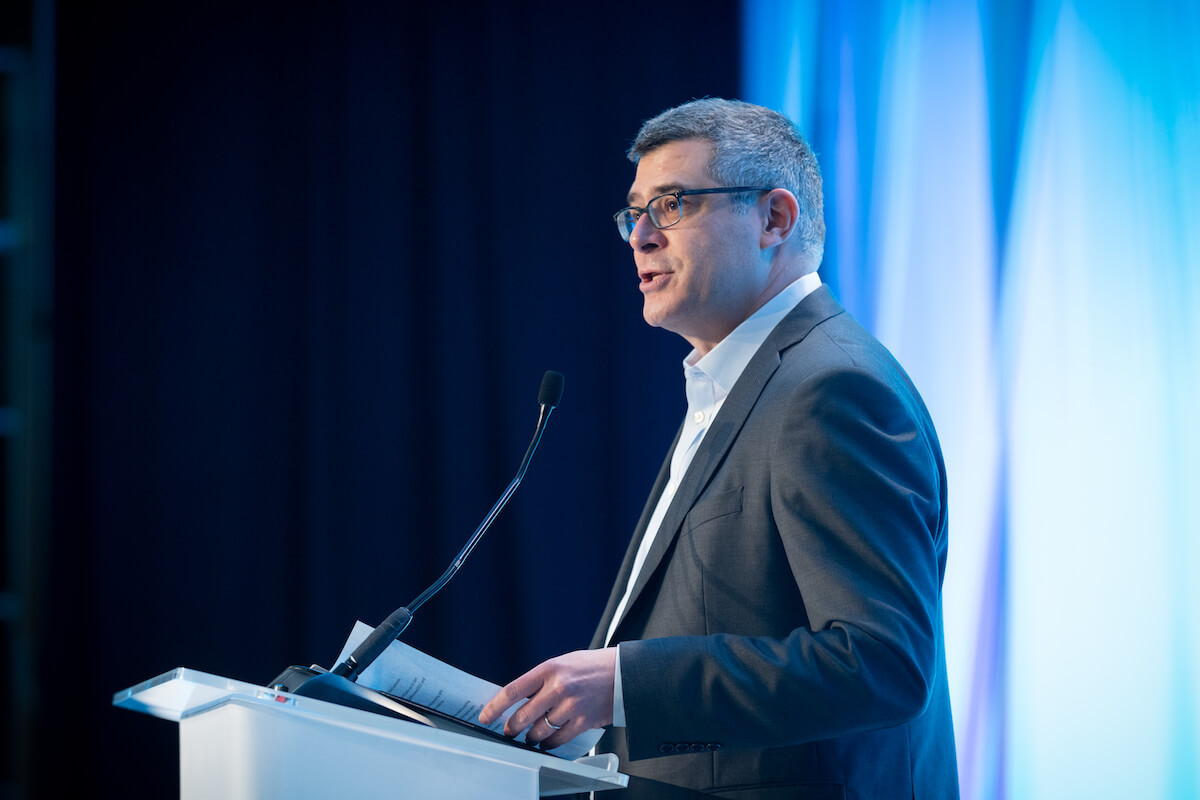Climate technologies have become better and more affordable. Renewable energy can compete on cost with power from coal and natural-gas plants. The improving price and performance of batteries is making everything from electric vehicles to long-duration energy storage more attractive to customers.
All of this, along with rigorous climate goals from U.S. states and other nations, is fueling significant demand for clean energy products and other climate tech solutions that reduce greenhouse gas emissions.
According to a recent PwC report, venture capital investment in clean technologies aimed at slowing the climate crisis increased from $418 million in 2013 to $16.3 billion in 2019 – a 26-fold increase.
In just the past year, more than 300 global companies – including Microsoft, Delta Air Lines, Amazon, and others – have committed to achieving net-zero emissions before 2050 or earlier. Many have pledged to fund innovation.
And the trends have tailwinds in the new U.S. administration of President Biden, who in his first few months has already taken bold steps to confront the climate crisis head-on.
These include initiating the follow-through on his campaign pledge to create ARPA-C, an initiative to foster game-changing technologies that will help the U.S. achieve a goal of net-zero, economy-wide emissions by 2050, as well as directing the launch of a Civilian Climate Corps aimed at creating new climate-related jobs.
Patient, risk-tolerant capital
From my perch as executive director of Vertue Lab, a nonprofit that funds and supports entrepreneurs developing new cleantech climate solutions, these are very promising trends. But while this uptick in climate tech VC investment and federal initiatives to shift to a clean economy are needed and encouraging, successfully solving the climate crisis isn’t guaranteed.
At VertueLab, our $5 million Climate Impact Fund leverages catalytic philanthropy to help fill the early-stage capital gap, investing in entrepreneurs developing innovative climate solutions. The Climate Impact fund has raised $3.1 million so far, from Meyer Memorial Trust, Woka Foundation, Grantham Environmental Trust, Oregon Community Foundation and other foundations and individuals (editor’s note: updated). We combine this patient, risk-tolerant capital with expert business training, coaching, and support in accessing federal grants.
Among the earliest investors of this type of capital, VertueLab serves as an intermediary between the impact-first investors/philanthropists desiring that their financial resources help solve the climate crisis and startup companies developing promising technologies with the potential to make significant impacts on reducing greenhouse gas emissions.
Since we started making these types of investments in 2014, we have seen others recognize that alternative models to traditional venture capital are needed to address the capital gaps that climate technologies experience. Bill Gates’s $2 billion Breakthrough Energy Ventures fund invests on 20-year cycles. MIT’s “tough tech” incubator, The Engine, assumes it will not see a return for 12 to 18 years. And Prime Coalition began utilizing philanthropic capital to invest in cleantech startups.
We will not be able to solve the climate crisis unless we have a full pipeline of new technologies in the very early stages of development. That requires solid funding, from government research funding and impact-first investments that many are now calling “catalytic capital.” The deployment of catalytic capital is driven by the investor’s greater desire for impact than for financial returns, enabling more patient, risk-tolerant funding.
Cleantech redux
When the cleantech investment surge of 2006 went bust in 2011, there were many contributing factors, including the Great Recession, the Chinese government’s massive investment in solar manufacturing capacity, and the gas fracking boom.
But another problem lay in the fact that many early stage cleantech startups received capital from venture capitalists, who were new to investing in this type of company. They didn’t understand that many clean technologies take longer to develop, scale, and deploy than software, a poor fit for the short 3- to 5-year timeframe for a return on their capital that they were used to seeing when investing in software companies.
Today, more market-rate venture capital is moving into the climate tech solutions arena. But the majority of this financing is flowing to clean technologies that are fairly far along in the development cycle, where the risk to investors is much smaller.
The problem is that a very large funding gap still exists at the earliest stage – that point when entrepreneurs are starting to transition research discoveries into new startup companies, a time when VC investments aren’t yet an appropriate source of funding.
Without early-stage funding, only a small number of entrepreneurs are able to successfully move their innovations from the laboratory to the marketplace and ultimately access the growing pool of venture capital that the PwC report highlights. This is especially true for innovators without access to family wealth or connections to a handful of elite universities.
This is a societal problem because this early-stage funding gap causes many promising climate technologies to languish on the lab bench, never reaching their potential to help reverse the climate crisis and create new, green jobs.
More and more private foundations and individuals (especially millennials) are recognizing the need to fill this capital gap and are using philanthropic giving and investing, often via donor-advised funds, to complement other funding to help deliver on the promise that new technologies can help solve the climate crisis.
Bridging the gap with impact-first capital to help get startup companies ready for a massive wave of new climate tech venture capital is one of the keys to bringing new climate solutions to scale.
David Kenney is president and executive director of VertueLab, a nonprofit economic development organization in Portland, Ore., that bridges cleantech innovators and investors. VertueLab was formed as Oregon BEST in 2007, with funding from the state of Oregon.











